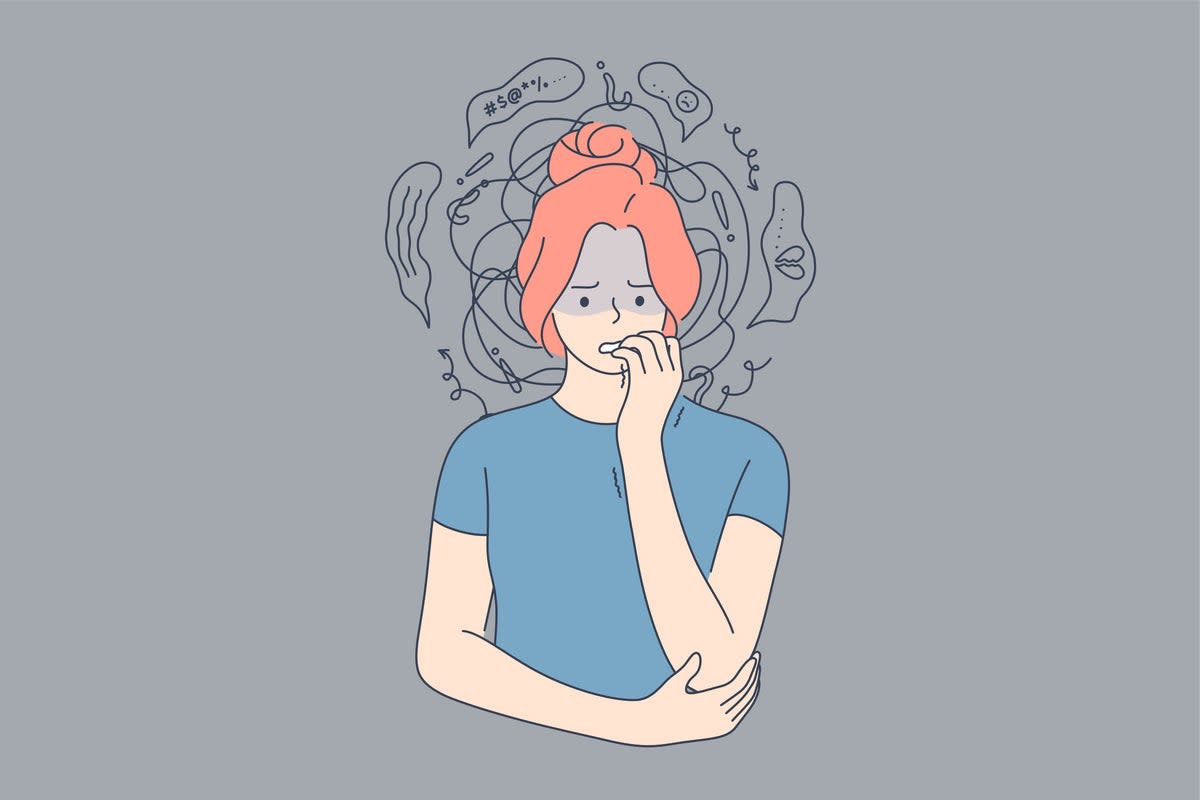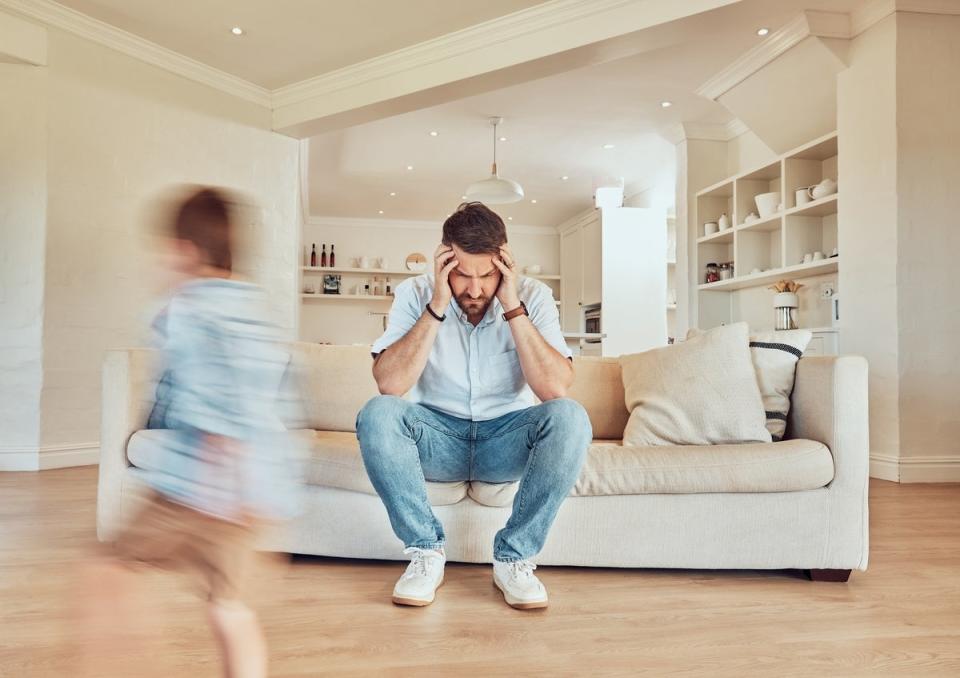Is it time to ban smacking your children?

Is it ever OK smack your own children? Does physical punishment ever have a place in parenting? This is a divisive, long-running debate that reared its head again this week, with a definitive report warning that smacking children risks triggering violence and mental health problems in later life.
Unlike in Wales and Scotland, the use of physical force against one’s own children in England and Northern Ireland has yet to be banned. As the law stands, parents in those two countries can cite “reasonable punishment” as a defence for why they hit their offspring, much to the horror of leading health professionals, who this week fiercely condemned the continuing situation.
In its report, the Royal College of Paediatrics and Child Health called for Gillian Keegan, the education secretary, to start the process to change the law to remove the reasonable punishment defence in England ahead of the next general election. Evidence shows smacking children made them much more likely to suffer poor mental health, do badly at school and be physically assaulted or abused, according to the RCPCH.
“There is evidence to suggest that children who are physically punished are more likely to believe that violence is accepted and encouraged by society, which may lead to them behaving in a more violent manner in adolescence and adulthood,” says the report.
Prompted by Sweden, which led the way in 1979, 65 states around the world prohibit any form of physical punishment of children, while 27 more states have committed to reforming their laws to achieve a complete legal ban. Wales made any type of corporal punishment – including smacking, hitting, slapping and shaking – illegal in March 2022, while Scotland introduced a similar ban in November 2020.
And yet the picture remains murky in two countries that make up the United Kingdom. Andrew Rowlands, a consultant paediatrician and RCPCH officer for child protection, says existing laws “create a grey area in which some forms of physical punishment may be lawful, and some are not”.
In other words, what did the minor in your care do to justify being hit? Run into the road? Touch something hot? Hit their sibling? Hit you? Or were they being generally bolshy, also known as “being a toddler”? I’ve either endured my children doing at least one of those things or done one of them myself as a child. I’ll admit to tapping – not smacking – one of mine on the leg when they were being impossible, but I knew it was wrong. (The child in question swears blind to my innocence so I assume it wasn’t a big deal.)
When I was a nine-month-old baby in Bangkok, where I was born, my mother caught me “crawling purposefully towards a tempting two-pin electrical socket on a Thai skirting board, with outstretched fingers that were at the exactly the right level and were going to fit perfectly. As there were no earth wires in Bangkok, it would have been instant death.” She dashed across the room, grabbed my tiny hand and smacked it, albeit not hard. “It was a conscious and desperate decision on my part. You were not hurt but you had a different sort of shock, and you never did it again,” she says, still remorseful. Her unwarranted guilt underlines how a quick smack can sometimes be more traumatic for parents than for children. One father I know is mortified about the couple of times that he has – lightly – smacked his child.
My mother’s unwarranted guilt underlines how a quick smack can sometimes be more traumatic for parents than for children.
Although many among my parents’ generation recall being smacked when they were young, attitudes are changing. A survey conducted by the NSPCC in 2023 shows that 67 per cent of voting adults believe that physical punishment of children is wrong, while a further 63 per cent feel that the law should specifically be changed to prevent any suggestion that physical punishment of children is lawful or reasonable.
“It is clear that the general public are in favour of a change that better protects children from abuse,” according to the RCPCH.
As things stand, it is up to legal professionals to judge whether the form of physical punishment was reasonable and moderate, considering factors such as the age of the child. What this means in practice, is some of the “physical battery” inflicted will get ignored and some children will wind up getting better protected from assault than others – depending on any verdict. That said, there aren’t believed to have been any convictions in either Wales or Scotland since the law was changed, which campaigners say shows that stronger legislation works as a deterrent.
Anja Heilmann, associate professor of epidemiology and public health at University College London, has studied how physical punishment increases behavioural difficulties. “Children have the right to be brought up without violence. The current situation violates Article 19 of the United Nations Convention on the Rights of the Child, which the UK has ratified. International evidence on this is really clear now. [Smacking] doesn’t work,” she says, adding that a ban would provide clarity for parents.

But before any legislative change is introduced, parents need to know where they can get help if they are struggling to discipline unruly children. “Parents are feeling unsupported and uneducated. If we make smacking illegal, we are putting a barrier in place for parents to admit they are really struggling. First, we need a proper education system,” says Nicole Ratcliffe, a 42-year-old mother of two, who had to seek medical help in late 2018 because she was so wrung out from sleep deprivation and battles with her then two-year-old daughter.
“I was genuinely worried that the situation could have led me to harming my daughter,” she says. The GP set her up with some counselling, which turned into a group anger management course. “I learnt strategies to help calm down, but it didn’t fix the problem, which was that I had no ability to regulate my emotions because my brain wasn’t getting the chance to heal through sleep.” Ratcliffe wound up studying child behaviour on a parenting course run by a worldwide programme, The Incredible Years, which was established more than 40 years ago in the US to help support child development. “This changed everything,” says Ratcliffe, who now runs her own sleep courses (Baby2Sleep) to help overwrought parents.
International evidence on this is really clear now. Smacking doesn’t work
Anja Heilmann, associate professor of Epidemiology and Public Health at University College London
She suggests several alternatives to lashing out. “Make sure the child is safe and then walk away. Calm your breath: try breathing in for four, and out for four. This will slow your heart rate. Visualise your child’s hands and how small they are. Visualise your child’s smile and their laugh. Remember how tiny they are,” she says. Next: walk back into the room and kneel down on their level. “Be ready for when they want to melt into you for a cuddle. If you are calm and they’re on you, they’re much more likely to calm down.”
For anyone still unsure whether there needs to be an outright smacking ban in England and Northern Ireland, the RCPCH’s Professor Rowland says changing the law would mean starting “conversations and interventions from a solid, clear starting block: there are never any circumstances where physical punishment of children is tolerated, acceptable, or lawful. [Legislation] would provide us with better opportunities to support families without confusion, to prevent the serious and well-evidenced risks associated with physical punishment and, crucially, better identify cases of child abuse.” Perhaps then, finally, there would clarity on at least one issue in the minefield that is modern parenting.


